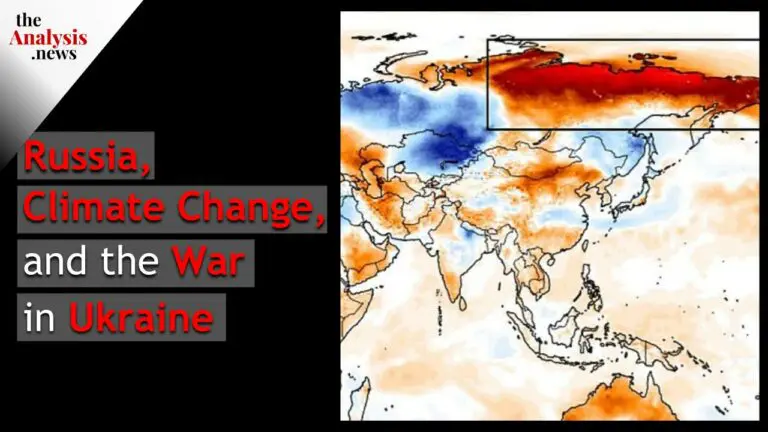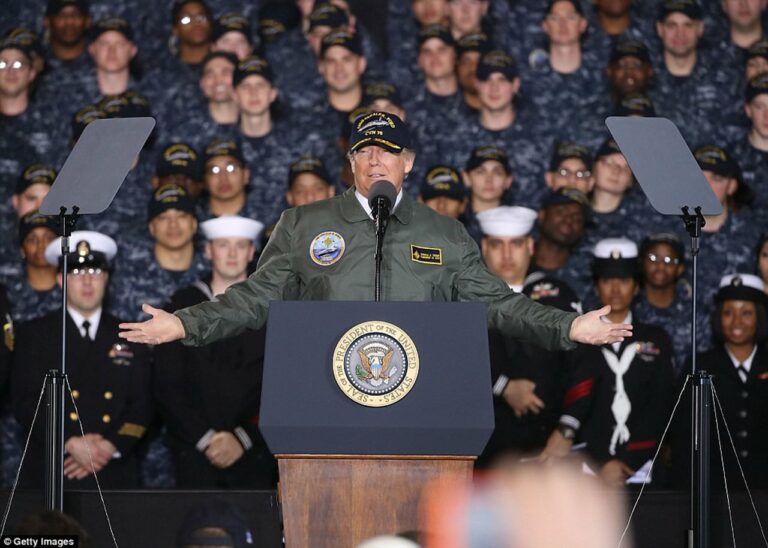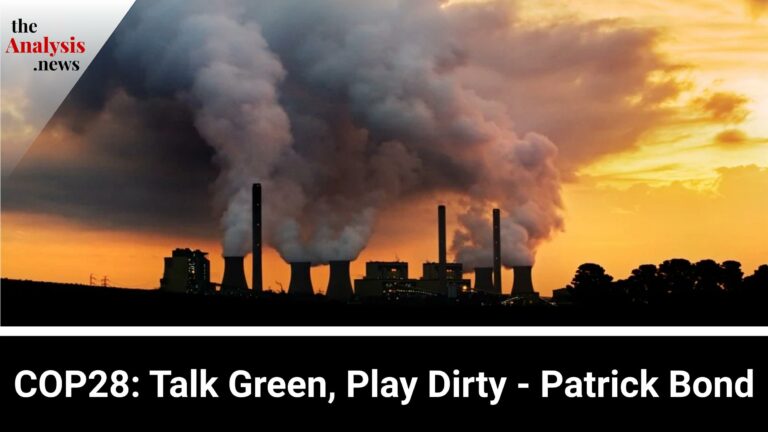On Reality Asserts Itself, Ms. Foroohar says many wealthy people understand that the climate crisis, deep recession, and war are real threats, but they believe “apres moi le deluge [after me comes the floods];” the Financial Times columnist and author of “Makers and Takers” said many of the rich have escape plans thinking “they can avoid the apocalypse” – with host Paul Jay. This is an episode of Reality Asserts Itself, produced May 9, 2018.
STORY TRANSCRIPT
PAUL JAY: Welcome to The Real News Network. I’m in New York City and this is Paul Jay and Reality Asserts Itself.
Rana Foroohar is an associate editor and global business columnist for The Financial Times. She’s also CNN’s global economic analyst and she joins us in the studio. Thanks for joining us Rana.
RANA FOROOHAR: Thanks for having me.
PAUL JAY: So, you know all kinds of people in the financial sector. You get to interview and talk to all kinds of leading people on various sides of this equation. Why aren’t they more concerned that the systemic risk here? And what do you think is the window for this risk? Like, it seems like everybody thinks the next big one is just inevitable. It’s just like, is it next year, or three years, or four years? Like, everyone takes it for granted there’s going to be another one.
RANA FOROOHAR: Yeah. No, it’s interesting. I mean, two statistics. Recovery cycles tend to move in ten-year periods, and we are at that point right now.
PAUL JAY: 2018.
RANA FOROOHAR: 2018. So we’re due for a recession. Like, that’s statistic number one.
PAUL JAY: Is that part of why they’re pumping all of this money into the military and domestic spending?
RANA FOROOHAR: Absolutely. Bingo.
PAUL JAY: Get through 2020 before the recession hits.
RANA FOROOHAR: Bingo. Get through the midterms over, who cares what the effects of an overheated economy are later, let’s keep the Republicans in office. It’s absolutely the strategy, and it’s completely cynical.
In terms of when the big one comes, one of the smartest sources on my book was a guy named Andy Haldane, who is the chief economist for the Bank of England. Very creative thinker. And he did an interesting paper looking at how the time lag between major financial crises has actually shrunk. So you know, we often compare the Great Financial Crisis of 2008 to 1929. And that, that’s fair. But there’s a lot of crises in there. The peso crisis, the SNL crisis, all those have been shrinking. So from the ’70s onward, as finance got bigger, the number of crises began to concentrate, as well. So Andy now believes that crises come about every 15 years.
So we may not be that far away from the next bubble bursting, and I could imagine, if I think about policy, what we just talked about, with the end of a recovery cycle, we’ve pumped $4 trillion in this country, $30 trillion globally, into the economy with monetary policy. So that’s tapped out. We are now using fiscal policy to overheat a late-stage recovery in order to keep the Republicans in office. We are doing nothing to bolster underlying growth with educational reform, infrastructure reform, et cetera.
PAUL JAY: Wages are—
RANA FOROOHAR: Wages are still stagnant.
PAUL JAY: Moving just a hair.
RANA FOROOHAR: When I add all that up and play it out over the next five years, yeah, wouldn’t surprise me at all if we had another financial crisis.
PAUL JAY: And is, are the tools from ’07-’08 still going to have an effect? Like pumping, you know, zero low interest rates. You can’t kind of go lower than zero, or one. I guess the Fed can just throw money at banking institutions and big corporations again in terms of some other kinds of loans.
RANA FOROOHAR: Well, the Fed—
PAUL JAY: Are these tools still going to be effective?
RANA FOROOHAR: They won’t be nearly as effective as they were the last time around. In fact, one of the reasons that Jay Powell, the new Fed chair, is trying to normalize, as they say, monetary policy and do some rate hikes is that Republicans and Democrats know that when the next crisis comes there’s, there’s no more powder. You know, they’ve got it, they’ve got to get interest rates back up to a normal level so they can then drop them if there is a crisis. But we don’t have that much to work with anymore.
And in terms of dumping money, you can see with the quantitative easing program the first round of money dump was pretty effective, the second round less so, and the third so hardly at all.
PAUL JAY: So you get all these things converging and it’s not just a question of a potential crash in three, four, five years, whatever. These moments are almost also moments when one of the alternatives is war.
RANA FOROOHAR: Well, it’s always a good distraction, isn’t it. You know, when there’s internal problems, and you see this everywhere in every country, when there’s internal problems I think politicians often try and cause trouble beyond their borders. In fact, I would argue that the Russian election manipulation is in some ways a response to Putin’s own concerns about his own regime at home. You know, I mean, he’s a Petrov dictator that was having problems at home long before the issues started in our 2016 elections.
PAUL JAY: But I’d also argue, assuming they did interfere, in the public domain I don’t think there’s any hard evidence yet about the state’s involvement. But let’s say they did. It’s such a distraction how it’s being talked about. This is not the burning issue of our times. I’ve been cracking a joke on the Real News, which I’ll crack again, the reason the American elites don’t like the Russians manipulating and rigging the American elections, because only the American elites are allowed to rig American elections. How dare a foreigner do it?
RANA FOROOHAR: You could actually argue that—
PAUL JAY: Americans can rig other people’s elections.
RANA FOROOHAR: Right. You could actually argue that they have, in the sense that our largest and richest companies, platform technology firms, the fangs have been used to do that manipulation.
PAUL JAY: And unlimited financing, now. It’s not an accident that the person that helps elect Trump is Robert Mercer, who’s part of a high-speed quantitative trading company. And the role of finance in deciding who gets to run as a heck of a lot more powerful than any Russians.
RANA FOROOHAR: Yeah. That’s, that’s absolutely true.
PAUL JAY: So very dangerous times. And now we haven’t even talked about in this whole conversation the issue of climate change. There was a time in ’07-’08 when even finance seemed to get what a danger this was. Then the crash comes. And now it’s, like, it’s not even on the political agenda.
RANA FOROOHAR: Well, you know, the only, I would argue the only reason finance cared about climate change in ’07-’08 is that we were having an oil boom. And whenever oil prices go up, finance gets more interested in green technologies because they suddenly seem to make sense economically. If you think about wind, you know, I don’t know the exact figures, but wind power, say, costing, you know, the equivalent of $40 a barrel of oil, or whatever the equivalent would be. Those technologies become more cost effective as the price of oil soars. And so that’s why you saw a lot of interest. But then when oil, which is very cyclical, right, very volatile, when it tanks you see all the money flow out of the sector, out of the clean energy sector. And I expect that’s how it would be now.
It’s too bad, because, you know, we haven’t really talked about what are the alternatives to this financial, financialized capitalism. One of the kind of amazing, like, duh, low-hanging fruit things that we could do is have a green stimulus program. Joe Stiglitz has talked about this, many others have talked about it. It would be the easiest, quickest, smartest way to actually create some real growth in the economy, transition off of fossil fuels. You know, just, just implementing the best technologies available today in all homes and schools, institutions, would create so many jobs and so much growth that it could really help jumpstart the economy in a true ground-up way.
PAUL JAY: There’s no better example of the complete irrationality of this system that that would even make Wall Street money. I mean, capitalists would make money out of a new green economy. But the politics of it is you’re going to have to take on the Koch brothers. There’s a lot of money being made now in war. I should say getting ready for war, and wars. And as rational as that is, and it wouldn’t even be anti-capitalist. Like, you could have a big green economy. People could make money out of it.
RANA FOROOHAR: And in fact, China—
PAUL JAY: You can, you can, and China’s to some extent doing it.
RANA FOROOHAR: China’s, is starting to try and do this. I mean, I have a lot of, you know, issues with China, policy-wise. But one thing that they’ve been very smart on is making these green technologies, green batteries, solar panels, wind, making these strategic sectors and really connecting the dots between workers, businesses, funders, job creators, et cetera.
PAUL JAY: So get into the heads of these people who are making these decisions.
RANA FOROOHAR: Do I have to?
PAUL JAY: They have kids. They have grandkids. They got to live in this world. I know they’re making an orgy level of money. But they’ve made it. And I know I’m not suggesting that there’s ever an end of wanting to make money. I’ve asked people who have ridiculous amounts of money, why are you still trying to make more money? And it comes down to because that’s who I am, and what else am I going to do. I mean, there’s some that decide to start giving it away and do philanthropy. And, but even then are still very concerned about making more and making more. But more importantly, how do, do you ask, how do these people go home at night and not be concerned about climate crisis, and war, and financial meltdown? How do we not worry about that?
RANA FOROOHAR: You know, I think it’s, it’s a worry that if it exists, it gets kind of tucked in the back pocket some, somewhere. One thing I’ve been hearing from a lot of very wealthy people these days, since the election, actually, is that they all have escape plans. You know, I mean, there was a very interesting story, actually, in the New Yorker by Evan Osnos who I knew, actually, when he was a reporter in China. And he covered the ways in which rich people are buying up ranches in New Zealand and creating bunkers in the Bahamas, or wherever they’re going, thinking that they’re somehow going to be able to avoid the apocalypse when it comes. There’s actually a business that operates in New York. It’s a boat that will come, you can apparently pre-buy, this sounds like the biggest scam in history to me, but you can pre-buy tickets if there’s some political crisis or some danger moment, and they’ll come and pick you up and whisk you up the Hudson.
Now, you know, which rich people think there’s going to be their seat waiting when there’s a real problem, I don’t know. But I think that that that goes to this idea that the wealthy have come to believe, frankly like, you know, the French, perhaps, in the 18th century that—
PAUL JAY: Apres moi le deluge.
RANA FOROOHAR: Exactly. You know, that I’m, I’m over here. I’m away from this larger—
PAUL JAY: You realize you’re quoting Marx again.
RANA FOROOHAR: I know. Gosh, I’m gonna get fired from the Financial Times if I’m not, not careful. Maybe you should edit that.
PAUL JAY: That’s he, he was once asked to define the mentality of a capitalist. It was, he said it’s ‘Apres moi le deluge.’
RANA FOROOHAR: So I think that there’s a lot of that. But I also hear, I mean, I once asked Carl Icahn, like, you have whatever it is, $20 billion. Like, what are you, why are you still doing this? He’s like, what else would I do? What am I going to do, play shuffleboard? I mean, I think, you know, they could be, in some ways it’s not even about the money anymore, it’s about the game. It’s about keeping score. He could be trading fish, he could be trading companies, it’s all the same thing.
PAUL JAY: And they’re older, a lot of them, too. They figure they’ll be gone, soon.
RANA FOROOHAR: I think so. But they still want to win before they do.
PAUL JAY: OK. In our next segment we’re going to talk about artificial intelligence, because I’m thinking that other than escaping to New Zealand or wherever else I’m going, I’m figuring a bunch of robots are going to do all the work and I don’t much have to care about people that might be in flooded Bangladeshes, or even working people throughout the United States. As long as AI can go make the stuff, what do I need all these people for?
So in the next segment we’ll talk about AI and maybe artificial intelligence for whom, which is what Stephen Hawking said not long before he died. So please join us for the next segment of our interview with Rana Foroohar on Reality Asserts Itself on the Real News Network.






